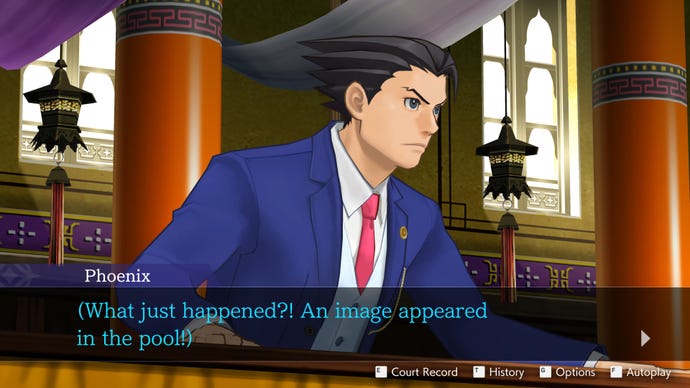HomeReviews
Apollo Justice: Ace Attorney Trilogy review: the guilty pleasure boxsetLet’s settle this
Let’s settle this
Image credit:Capcom
Image credit:Capcom
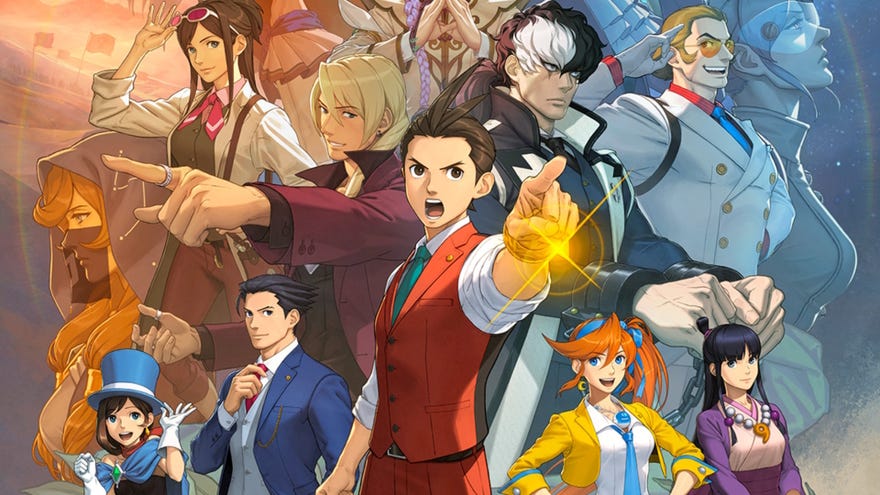
The result is a set of games that feel considerably wobblier than Capcom’s first and more robustAce Attorney trilogy, and quite a bit more unfocused than the more recent Victorian-era spin-off,The Great Ace Attorney Chronicles. But despite a slightly unsure start, there are still plenty of career highs to be found here for Wright, Cykes and Justice, and Spirit Of Justice in particular remains one of the series' best entries to date. Those new to Ace Attorney should absolutely begin their journey elsewhere, but for series completionists, the Apollo Justice Trilogy is quite the welcome development.
Image credit:Rock Paper Shotgun/Capcom
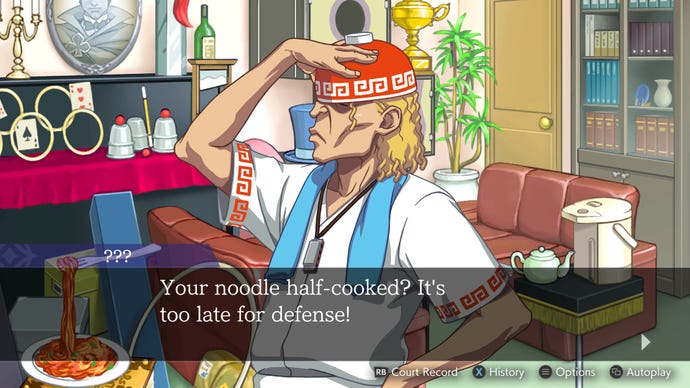
Spirit Of Justice may have the best pun work, but Apollo Justice isn’t far behind. |Image credit:Rock Paper Shotgun/Capcom
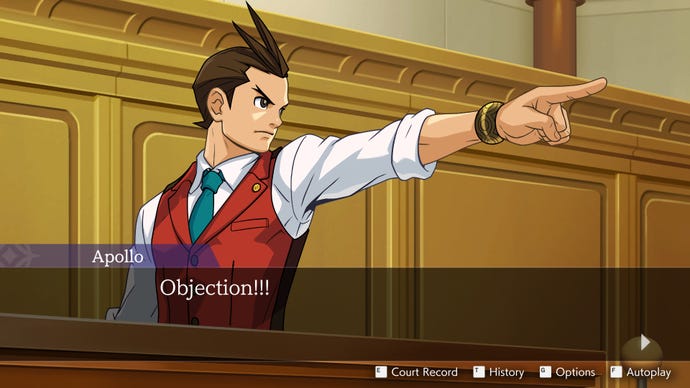
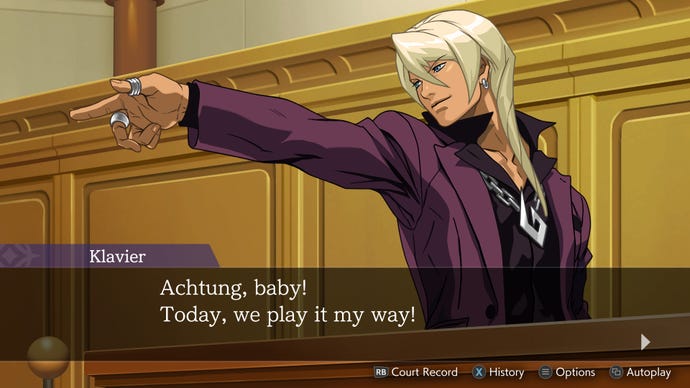
You can see how taking shoe moulds (left) and fingerprint dustings (right) would have been perfect fits for Apollo Justice’s DS hardware, but ‘press R to whistle’ doesn’t quite have the same ring to it… |Image credit:Rock Paper Shotgun/Capcom
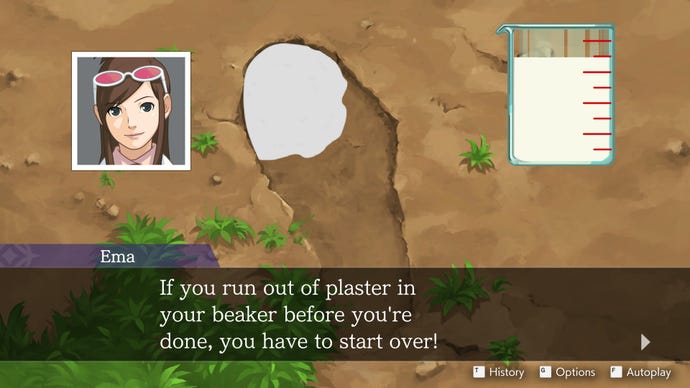
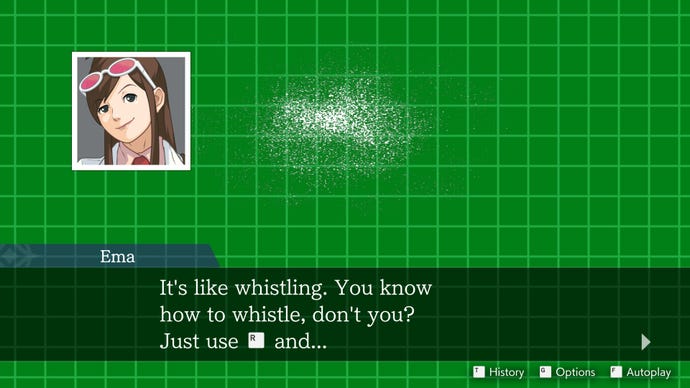
Image credit:Rock Paper Shotgun/Capcom
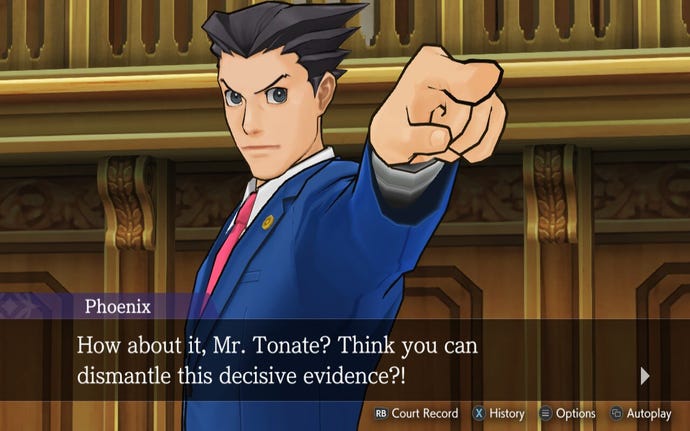
Unlike Apollo Justice, Dual Destinies and Spirit Of Justice retain their original 3D character models. The animation is a lot more characterful, although I’d argue Apollo Justice’s clean 2D artwork scales looks slightly more timeless. |Image credit:Rock Paper Shotgun/Capcom
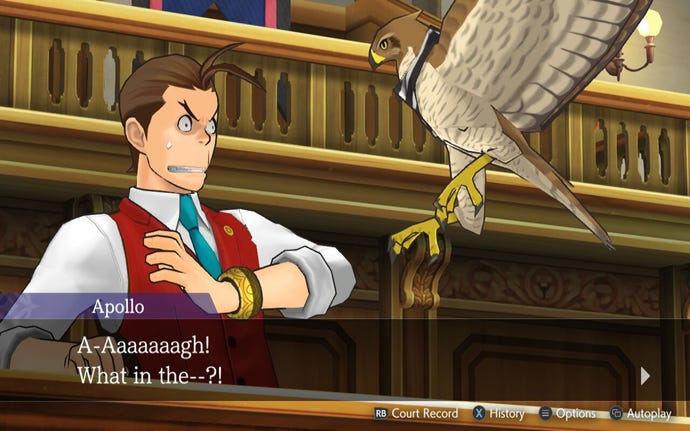
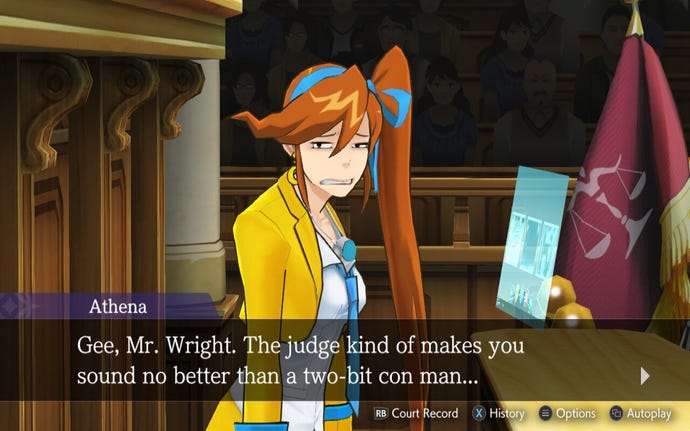
Athena’s Mood Matrix (top left, right) lets you identify conflicting emotions in a witness' voice, Apollo’s Perceive bracelet (bottom left) lets you zoom in on tiny twitches and suspicious swallowing, while Spirit Of Justice’s divination seances (bottom right) highlight sensory information as you watch the deceased’s final moments play out. |Image credit:Rock Paper Shotgun/Capcom
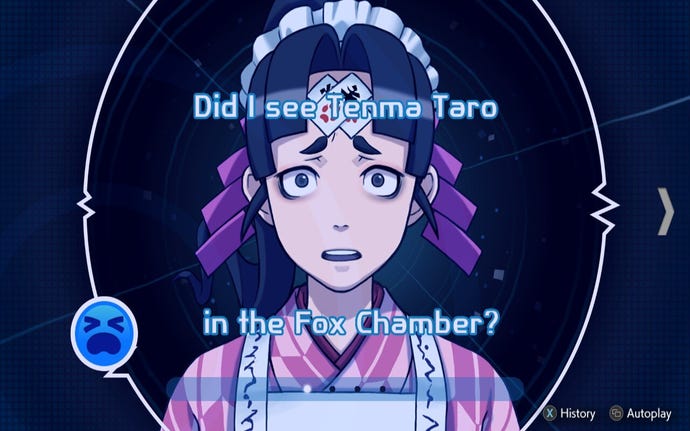
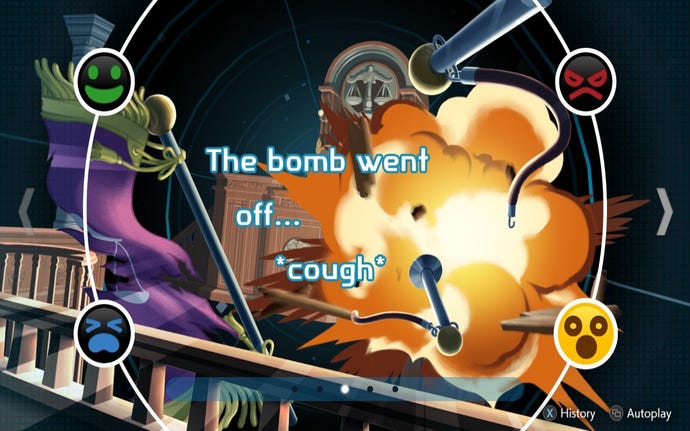
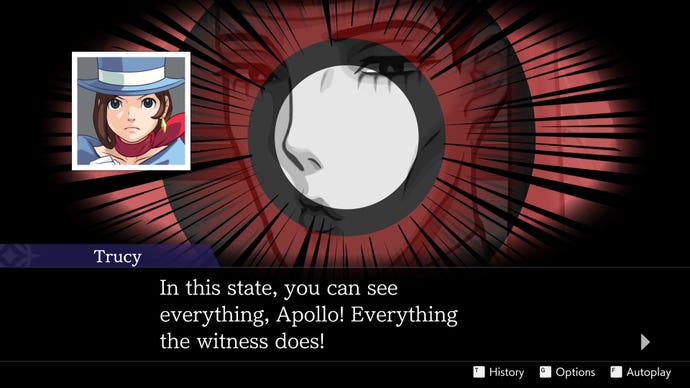
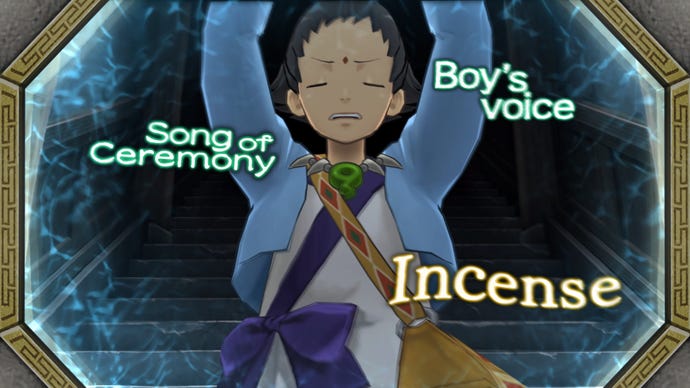
That’s not to say Apollo Justice and Dual Destinies are total duds, though. The journey you go on in the aforementioned noodle stand case in Apollo Justice is just great fun from start to finish, and even the opening poker game-gone-wrong has some clever tricks up its sleeve when it comes to who and howtheydunnit. Likewise, the trial set inside a legal academy for aspiring prosecutors, judges and defence attorneys in Dual Destinies is a wonderfully comic tour de force that really lets Capcom’s animation team strut their stuff. The space centre murder case towards the end of the game also uses the setting’s multiple floors and exhibition pieces to great effect, crafting a deviously plotted murder sequence that almost makes up for the absolute stinker of a second case in Dual Destinies, because, yep, the lows really are quite low in this run of games, with many of them making a case for some of the worst episodes in the series.
This dreariness can, of course, be mitigated more effectively here thanks to the ability to dip your toes in and out of cases at will in its case selection menu - though I’d argue that this only really serves returning Nintendo players who know which cases to revisit and which ones to steer clear of. Taken as a whole, this trilogy ends up feeling a lot more uneven than either the first trio of Ace Attorney games, or the pair of Chronicles. Perhaps this is because none of them bear the fingerprints of series creator Shu Takumi (who was off making Great Ace Attorney Chronicles and Layton Vs Wright back then). Or maybe the sheer passage of time between Apollo Justice and Dual Destinies coming out made the renewed emphasis on Phoenix Wright and gradual sidelining of old Apollo feel more of a necessity after being so long out of the spotlight.
The law is a cruel mistress in Khura’in, as defence lawyers are put to death alongside their clients if they get a Guilty verdict. |Image credit:Rock Paper Shotgun/Capcom
